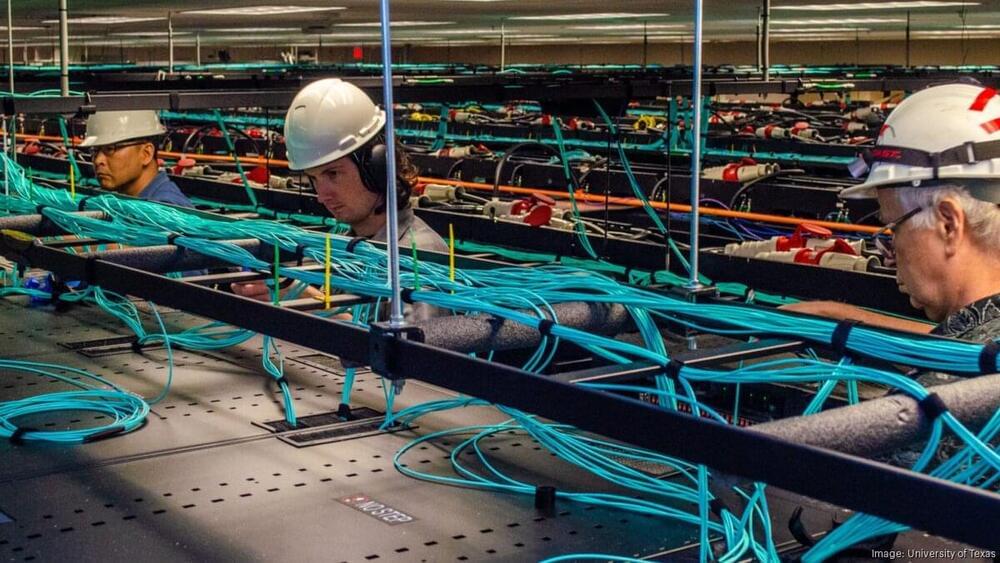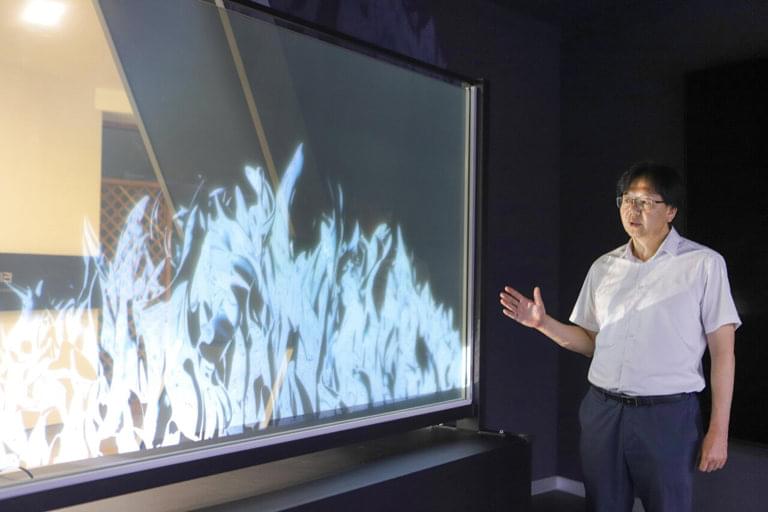Tons of money have been set aside to build a new AI supercomputer lab here.



How does cannabis alleviate the symptoms associated with chronic musculoskeletal (MSK) pain in patients? This is what a recent study published in the Journal of Cannabis Research hopes to address as a team of researchers from Canada investigated patient perception regarding cannabis use and treating their MSK symptoms. This study comes as an increasing number of MSK patients have turned to cannabis to alleviate their pain symptoms without hard data to support that use.
For the study, the researchers conducted a self-reported survey with 629 MSK patients in Canada with an average age of 56 years old and comprised of 44 percent men and 56 percent women. For the surveys, the patients were asked to privately disclose their past or present cannabis use in managing their MSK pain. In the end, 144 (23 percent) of participants reported past or present cannabis use with 63.7 percent disclosing that cannabis was effective at treating their MSK pain and 26.6 percent disclosing it as “slightly effective”, per the study.
The researchers concluded, “One in five patients presenting to an orthopaedic surgeon with chronic MSK pain are using or have used cannabis with the specific intent to manage their pain, and most report it to be effective. Among non-users, two-thirds reported an interest in using cannabis to manage their MSK pain, but common barriers to use existed. Future double-blind placebo-controlled trials are required to understand if this reported efficacy is accurate, and what role, if any, cannabis may play in the management of chronic MSK pain.”

Advances in artificial intelligence are coming to your freezer, in the form of robot-assembled prepared meals.
Chef Robotics, a San Francisco–based startup, has launched a system of AI-powered robotic arms that can be quickly programmed with a recipe to dole out accurate portions of everything from tikka masala to pesto tortellini. After experiments with leading brands, including Amy’s Kitchen, the company says its robots have proved their worth and are being rolled out at scale to more production facilities. They are also being offered to new customers in the US and Canada.

CEO Elon Musk teased it in April for the first time, and it was set to bring unprecedented momentum to the company’s years of development of Full Self-Driving and fully autonomous driving technologies.
However, Tesla is not quite ready to roll out the Robotaxi prototypes.
First reported by Bloomberg, Tesla is said to need more time to build the first units of the Robotaxi. Because it is built upon the automaker’s next-generation platform, which is to blame for the company’s lack of growth in 2024, more development is needed.

Wriggling critters armed with enzymes can break down plastics that would otherwise take decades, or even centuries to degrade.
At first glance there’s nothing particularly remarkable about waxworms. The larval form of wax moths, these pale wriggling grubs feed on the wax that bees use to make their honeycomb. For beekeepers, the pests are something to swiftly get rid of without a second thought.
But in 2017 molecular biologist Federica Bertocchini, who at the time was researching the embryonic development of vertebrates at the Spanish National Research Council, stumbled on a potentially game-changing discovery about these creatures.


You can now get a Starlink Mini in the US, wherever you are and even if you’re not paying for a residential subscription. SpaceX started offering select users the new Starlink dish model that’s small enough to fit in a backpack in late June. Despite its small size that makes it easy to transport and carry around, the Mini used to require an existing $150 standard service plan — you could only tack on the Mini Roam service for an additional fee of $30 a month. Now, you can get it on its own with a roaming service.
The mobile regional plan costs $150 a month and will give you access to unlimited data. It’s probably the better option if you live in an RV or travel to remote locations for extended periods of time. Meanwhile, the Mini Roam plan costs $50 a month and will give you access to 50GB of data, which is likely enough if you don’t live on the road full time. Take note that you can use Mini Roam in motion anytime, as long as you’re on land. The mobile regional plan has limited in-motion use and only works when you’re going slower than 10mph, though you can choose to add data meant for in-motion use on a per-GB basis.
Like Starlink’s other terminals, you’ll have to pay for the Mini up front. It will cost you $599 for the kit, which includes a kickstand, a pipe adapter, a power supply and a cord with a USB-C connector on one end and a barrel jack on the other. (As The Verge notes, you can plug it into a 100W USB-PD power bank if you don’t have access to other power sources.) There’s no Wi-Fi router with the kit, because it’s already integrated into the dish, giving you one less component to carry.


A super-sized Nano Transparent Screen (NTS) has been developed and commercialized for the first time in the world. This innovative screen can adjust its transparency according to the environment and can be produced at a low cost, paving the way for the widespread adoption of large transparent screens, which until now have been prohibitively expensive.

Spider spidroin revives the silken splendor.
In their quest to make silk powerful again, not by status but rather by thread strength, scientists turned to an arachnoid. Dragline silk, the thread by which the spider hangs itself from the web, is one of the strongest fibers; its tensile strength—a measure of how much a polymer deforms when strained—is almost thrice that of silkworm silk.2
Beyond durable fashion garments, tough silk fibers are coveted in parachutes, military protective gear, and automobile safety belts, among other applications, so scientists are keen to pull on these threads. While traditional silk production relies on sericulture, arachnophobes can relax: spider farms are not a thing.